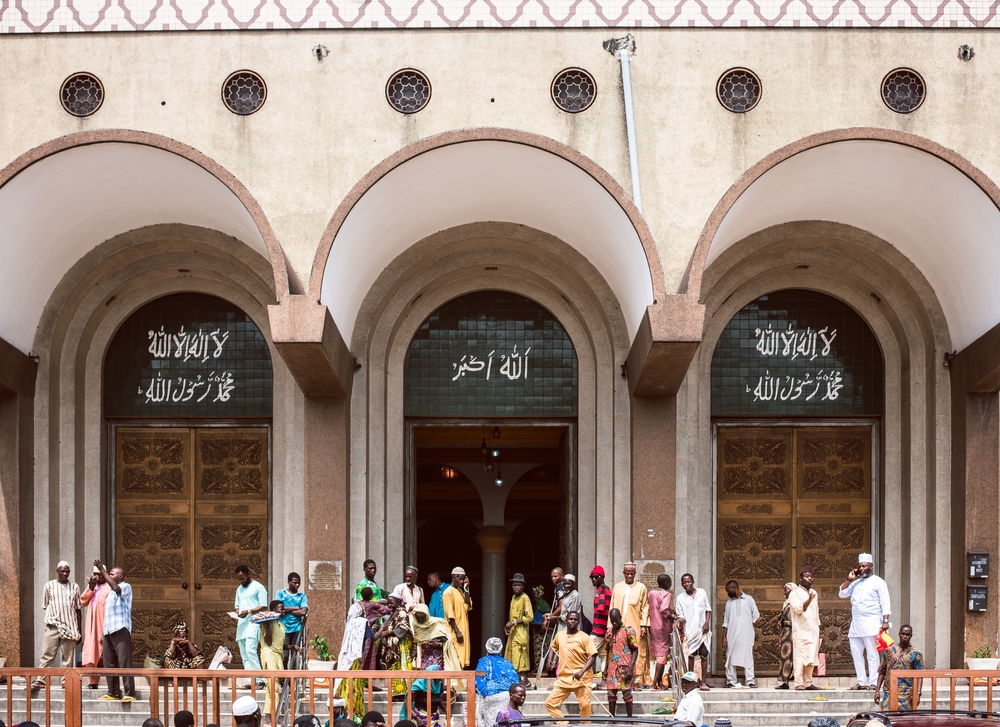Two weeks ago we spoke with Daniel Bloch, one of the co-founders of Seso Global about how they use Web3 to make mortgages a reality in West Africa.
Continuing our exploration of RWA, this week we are catching up with Nnamdi Uba, co-founder and CEO of Sytemap (by House Africa), a Web3 startup dedicated to empowering land ownership in Africa that we, Adaverse, have been backing since 2023.
Founded in 2019, Sytemap has been tackling the challenges faced by real estate investors, particularly those residing overseas. Many of these investors are busy professionals based in Western Europe, North America, or Asia who aspire to invest in Nigerian real estate but are often discouraged by concerns about reliability and transparency.
To solve this, Sytemap introduced innovative solutions like virtual site inspections and original satellite imagery. This technology allows investors to inspect land from the comfort of their homes, view the status of various projects, see which lands are available or sold, and even reserve and pay for land later.
The African real estate market was valued at $6.8 billion in 2020 and is expected to reach $8.3 billion by 2026, growing at a CAGR of 3.4% from 2021 to 2026. Also, Africa’s urban population is expected to nearly triple by 2050, reaching 1.34 billion people, driving demand for real estate and proptech solutions.
Before delving into it, we wanted to get Uba’s thoughts on the real estate industry and how that impacts their user acquisition strategy.
Here’s what he had to say:
Nnamdi Uba: The African real estate industry faces numerous challenges, and it’s a sector with minimal technology penetration. We’re currently in the adoption stage, which means we need to focus more on education than selling. Our strategy involves organizing numerous webinars and educational activities to help people understand the need for technology in this sector. We’re particularly focusing on land, housing, and property listings, as well as demonstrating how transactions can be closed in minutes rather than taking an extended period.
Adaverse: What you’re building is cutting-edge. Are you drawing inspiration from any other countries or companies that have implemented similar systems, or are you pioneering this approach?
Nnamdi Uba: We are among the first to tackle this challenge, which makes it quite difficult, but there’s a clear market for it as it has existed without technology. Our aim is to integrate technology into this market, and it’s proving successful.
We’ve initiated pilot projects in locations like Ivory Coast, collaborating with the Real Estate Association there. The challenge we’re addressing is particularly relevant across African markets, not just in Nigeria. The common issue is the lack of transparency and trust; buyers want to verify what they’re purchasing.
Our goal is to use technology to help real estate companies enhance transparency and trust, benefiting both buyers and the overall market.

Adaverse: Which customer segments are you finding most open-minded about what you’re building?
Nnamdi Uba: We’re primarily working with real estate companies, as they’re the easiest for us to approach. I’d call them the suppliers. When we get them on board, we provide a comprehensive solution they can use in their daily activities, which in turn attracts buyers.
We’re also targeting realtors or agents. However, in terms of communication, we find that potential buyers and investors are actually the most receptive audience. It’s a bit of a chicken-and-egg situation in business. To solve this, we’re focusing on discussing how our platform benefits the entire real estate ecosystem. This approach attracts buyers to check out the products offered by real estate companies, while also showing these companies how they can enhance their efficiency and close deals faster using our platform.

Adaverse: You guys launched in 2019. How was your mission changed in the last 5 years? Are you solving the same problem?
Nnamdi Uba: We’re still addressing the same core problem, but our approach has evolved. Tokenization remains central to our mission of becoming the infrastructure backbone for real estate transactions.
Previously, we focused on fractional ownership of individual properties. We had signed corporate partnerships with the likes of Allianz Insurance and FCNB, who served as our custodians, helping them hold funds.
We have since shifted focus. Now, we partner with real estate companies that own large tracts of land, helping them divide and sell these into parcels digitally.
Instead of fractionalizing single properties, we now assist in fractionalizing entire estate projects. Real estate companies typically create paper layouts, dividing projects into parcels. We digitize this process, enabling people to select, pay for, and own specific parcels seamlessly. While our core concept remains unchanged, our implementation method has significantly shifted.
Adaverse: Could you solve this problem without blockchain? How important is blockchain in addressing this issue?
Nnamdi Uba: Blockchain is crucial for addressing problems in the real estate industry. Traditional paper documents, like letters of allocation, are vulnerable to damage or loss.
We aim to digitize these documents, starting with letters of allocation, then expanding to deeds of assignment and conveyance. Digitizing makes them more secure and authentic. We help real estate companies issue digital letters of allocation instantly, complete with a QR code and stored on the blockchain as an NFT for future verification.
Blockchain is vital, especially in rapidly developing rural areas that will become new cities. Without this solution, we’ll face ownership verification issues like those in current cities. In Nigeria, 95% of lands lack proper titles. If unaddressed, this issue will worsen in the next 5-10 years.
Adaverse: What’s the impact of this lack of ownership on the average person or family? Does it affect them?
Nnamdi Uba: Yes, it does. Financial institutions can’t use your land as collateral for loans because ownership can’t be verified. Imagine if a bank could easily verify that your land is yours – they could give you a loan to improve your business, which could help boost the country’s economy.
There’s also an emotional impact. My co-founder, for instance, lost land he purchased when he discovered later that someone else was the rightful owner. It’s devastating to lose money and the property you thought you owned. It also wastes time as you might have to go to court to prove ownership or try to retrieve your money.
These issues cause a lot of stress and uncertainty. Solving this problem would allow people to buy land with peace of mind.
Adaverse: What are the security challenges of storing and managing tokenized real-world assets? Can someone steal my land deeds, and how can we prevent this?
Nnamdi Uba: Using blockchain, we ensure high security by storing data with IPFS (InterPlanetary File System), which can handle large files. We save and hash the data on IPFS, then store the hash on the blockchain. This requires unlocking the hash on the blockchain to access the IPFS data, making it very secure.
Most scams occur on centralized systems; decentralized systems are much harder to compromise unless private keys or seed phrases are exposed. It’s essential to avoid phishing links. Personally, I have 11 Ethereum I can’t access because I lost the private key, illustrating how difficult it is to access data without proper credentials.



